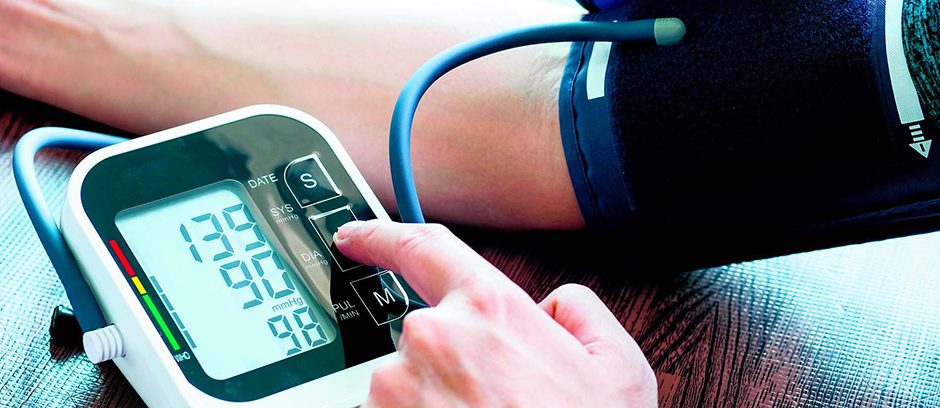
[Written by Reid T. Muller, MD, Albany Associates in Cardiology, St. Peter’s Health Partners Medical Associates.]
Taking care of your heart health is important year-round, but as part of American Heart Month, February is a great time to really learn what your blood pressure numbers are and what they mean for your health.
Blood pressure represents the force that blood exerts against the walls of blood vessels as the heart muscle pumps blood throughout the body. Your blood pressure will naturally rise and fall with changes in posture, exercise, stress, or sleep. When your resting blood pressure is consistently high, it means your heart is always working too hard and puts you at higher risk for a heart attack or stroke.
So, what is considered “high” blood pressure (also known as hypertension)? The current recommendation for the diagnosis of hypertension is having numbers consistently at 130/80 mm Hg and higher for all adults. Normal blood pressure is 120/80 mm Hg.
High blood pressure is known as the “silent killer” because often there are no symptoms until it is far advanced and has caused damage to other organs. Measuring your blood pressure regularly is the best way to know if your numbers are concerning. You can measure your blood pressure at machines at your local pharmacy or purchase an at-home blood pressure monitor. The American Heart Association offers these tips to get accurate readings at home:
- Be still.
- Do not smoke, drink caffeine, or exercise within 30 minutes of testing.
- Do not take measurements over clothes.
- Sit with your back straight and supported with feet flat on the floor. Do not cross your legs.
- Support your arm on a table with the upper arm at heart level.
- Place the cuff directly above the bend in the elbow. Check the monitor’s picture instructions.
- Take readings at the same times each day.
- Each time you measure, take two readings one minute apart and record your results.
Contact your doctor if your numbers are consistently too high (or too low). If your numbers are higher than 180/120 mm Hg, this is an emergency, and your doctor should be consulted immediately.
Experts agree that earlier detection, prevention, management, and treatment of high blood pressure can have significant, long-term health benefits.
Treating high blood pressure traditionally begins with lifestyle changes, including:
- Exercising to lower blood pressure and manage weight.
- Restricting sodium intake.
- Not smoking.
- Managing stress.
- Limiting caffeine consumption.
- Being aware of medications and supplements that can increase blood pressure, such as ibuprofen, naproxen, antidepressants, and decongestants.
If lifestyle changes do not consistently keep blood pressure numbers down, there are medications that can help. You are encouraged to talk to your health care provider about the next appropriate steps.
If you are having non-life-threatening cardiac symptoms, Albany Associates in Cardiology (AAC), part of St. Peter’s Health Partners Medical Associates (SPHPMA), has walk-in cardiac clinics with same-day appointments in two convenient locations in Albany and Clifton Park. SPHPMA also has additional walk-in clinic locations in Schenectady and Gloversville. These clinics provide comprehensive cardiology services and advanced imaging suites to detect complex heart conditions.
For more information, visit https://www.sphp.com/find-a-service-or-specialty/cardiovascular-care/walk-in-clinics or call 518-458-2000.





